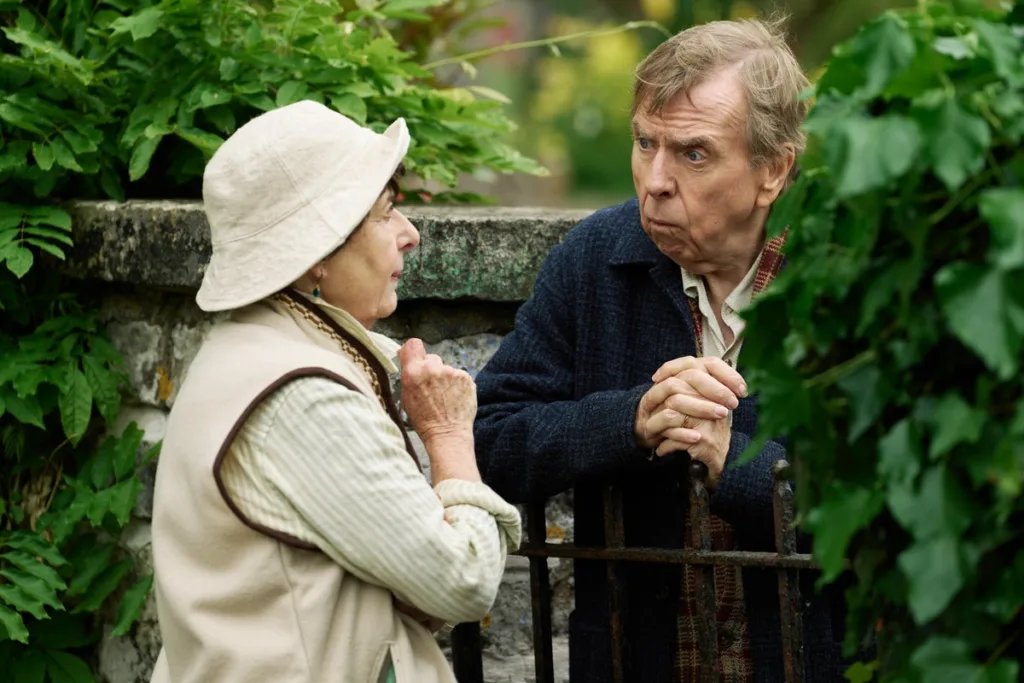There’s a certain comfort, isn’t there, in the familiar rhythms of a well-loved genre? Like a favourite old record, the cosy crime drama offers a predictable structure that, in the right hands, can still feel fresh and engaging. “Death Valley,” a new comedy drama, steps confidently into this space. Its title might conjure images of arid American landscapes, but we find ourselves instead in the verdant, seemingly tranquil confines of a Welsh valley.
Here, the central conceit unfolds: a retired actor, once famous for portraying a brilliant television detective, becomes an unlikely consultant to the local police. The village, naturally, is experiencing a rather uncharacteristic spike in complex homicides.
This setup, while treading well-worn ground, is executed with a light-hearted wit and a subtle undercurrent of seriousness, promising a viewing experience that is both amusing and gently thought-provoking. The series aims to blend the established patterns of amateur sleuthing with a distinctive comedic sensibility.
Thespian Instincts and Copper’s Zeal: A Study in Contrasts
At the heart of “Death Valley” lies the wonderfully mismatched duo of John Chapel and DS Janie Mallowan. Timothy Spall embodies Chapel, the actor renowned for his iconic TV detective, “Caesar.” We first meet Chapel as a somewhat shaggy recluse, his days in his small Welsh town marked by an ill-tempered solitude.
Yet, beneath the gruff exterior lies a mind honed by years of character study; he operates on the principle that “actors observe” and “action is character.” This skill, coupled with a quiet grief for his late wife that seems to fuel his initial detachment, makes him a fascinating amateur detective. Spall’s performance is a masterclass in understated depth, revealing layers of intelligence and sensitivity beneath the initial frostiness as Chapel gradually re-engages with the world.
Playing opposite him is Gwyneth Keyworth as DS Janie Mallowan, a bright spark in the local constabulary. She’s energetic, sometimes endearingly awkward (Chapel dubs her “scintillatingly irritating”), and initially a touch star-struck by the man who played her television hero.
Keyworth brings a vibrant, comedic energy to Mallowan, whose own unspoken challenges, including a past personal loss and professional ambitions, add a welcome dimension. Their first encounter, during an investigation into a suspicious death practically on Chapel’s doorstep, sparks an improbable partnership.
The dynamic is classic oil and water, with Chapel’s “inspiration” often clashing and then synergizing with Mallowan’s procedural “perspiration.” It’s through their snappy banter and slowly building mutual respect that the series finds much of its charm, evolving into a genuine, if unconventional, friendship. Even Janie’s boss, a man keen to clear cases with minimal fuss, seems to grudgingly accept this peculiar, yet effective, arrangement.
Remixing the Formula: Narrative Beats and Knowing Winks
“Death Valley” embraces the episodic, case-of-the-week structure that is a hallmark of its genre. Each installment typically opens with a demise – a local property developer’s apparent suicide, a death within a ramblers’ group – that initially seems straightforward. However, Chapel’s unique perspective, born from an actor’s insight into human behaviour, soon uncovers complexities that official procedure might miss.
This always reminds me of how creative problem-solving often benefits from an outsider’s viewpoint, something I’ve seen in various artistic collaborations. The narrative then follows Chapel and Mallowan as they navigate a landscape of quirky local suspects, carefully laid red herrings, and emergent twists, leading to a satisfying resolution by episode’s end. The sound design and visual style maintain a generally light, pleasant atmosphere, underscoring the “cosy” aspect without becoming saccharine.
What elevates the series is its sharp, witty dialogue, courtesy of writer Paul Doolan, and its self-aware engagement with genre conventions. It understands the audience’s familiarity with the tropes – the idyllic village teeming with dark secrets, the gifted amateur running rings around the police – and playfully leans into them.
The “show within a show,” featuring snippets of Chapel’s old detective series “Caesar,” is a particularly effective device. It not only provides comedic beats but also acts as a meta-commentary on the very nature of detective fiction. These moments, along with other cultural nods like Chapel’s near-miss with a famous fantasy series role or gags about the ubiquity of true-crime documentaries, demonstrate a clever understanding of current media consumption habits. This conscious dialogue with its own form allows “Death Valley” to feel like a contemporary piece, even as it works within a traditional framework.
The Warmth Beneath the Wit: Uncovering Deeper Resonances
Beyond the clever construction and immediate enjoyment of solved cases, “Death Valley” subtly explores themes that resonate with a broader cultural search for meaning and connection. The power of acute observation, of truly seeing the details others miss, is a constant thread – a valuable skill in a world often characterized by superficial engagement.
The series also champions the formation of unlikely friendships, particularly across generational or experiential divides, suggesting that connection can be found in the most unexpected of partnerships. This feels particularly pertinent today, as we often seek communities that bridge different perspectives. There are also gentle explorations of coping with loss and the quiet rediscovery of purpose, which add a layer of emotional sincerity.
Paul Doolan’s script consistently delivers, balancing these character arcs with well-paced episodic mysteries. The writing ensures the show is comforting without being bland, and entertaining without sacrificing intelligence. It’s this quality that reminds me of some of my favourite independent films, where character and smart dialogue carry the story.
While firmly rooted in mainstream appeal, “Death Valley” possesses a thoughtful quirkiness. The narrative neatly tied up its initial run but also left a distinct impression that there are many more stories this particular Welsh valley, and its unique crime-solving duo, could tell. It successfully offers a well-crafted iteration of a beloved format, making it a satisfying watch for those who appreciate mysteries with a distinct personality and a touch of warmth.
Death Valley is a six-part murder mystery series set in Wales, following the unlikely crime-solving partnership between eccentric retired actor John Chapel and Welsh detective sergeant Janie Mallowan. The series premiered on BBC One and BBC iPlayer on May 25, 2025.
Full Credits
Director: Simon Hynd
Writer: Paul Doolan
Producers: Nikki Wilson
Executive Producers: Paul Doolan, Josh Cole, Madeline Addy
Cast: Timothy Spall (John Chapel), Gwyneth Keyworth (DS Janie Mallowan), Steffan Rhodri (DCI Barry Clarke), Alexandria Riley (Baxter), Melanie Walters (Yvonne), Rithvik Andugula (DC Evan Chaudhry), Patricia Hodge (Helena), Remy Beasley (Rhiannon), Mike Bubbins (Tony), Sian Gibson (Wendy), Amy Morgan (Sioned), Steve Speirs (Lloyd), Eryn Kelleher (Ava)
Director of Photography (Cinematographer): Ryan Eddleston
Editor: Will Peverett
Composer: Sion Trefor
The Review
Death Valley
"Death Valley" offers a smartly written and wonderfully performed spin on the cosy crime formula. While it walks familiar paths, it does so with witty self-awareness, charming character dynamics, and genuinely engaging mysteries, making it a thoroughly enjoyable watch that proves there's still fresh life in traditional structures.
PROS
- Strong, nuanced lead performances from Timothy Spall and Gwyneth Keyworth.
- Sharp, witty dialogue and clever writing.
- Engaging character dynamic between the central duo.
- Self-aware approach to genre conventions, including the "show within a show."
- Satisfying episodic mysteries with a touch of heart.
CONS
- Adheres closely to a familiar genre structure.
- Occasional eccentricities might verge on being slightly overplayed for some viewers.















































